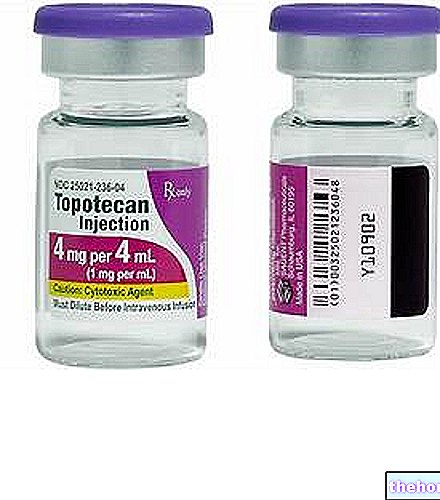Magnesium sulphate (MgSO4), or magnesium sulphate if you prefer, is the magnesium salt of sulfuric acid. In its heptahydrate form (MgSO4 · 7 H2O) it is also known as English salt, or Epsom Salt in Anglo-Saxon countries.

Magnesium sulfate as a laxative
Magnesium sulfate is marketed as a laxative to be taken by mouth, generally under the name of English salt or Epsom Salts. Depending on the doses taken, generally in the order of 20 grams per day, magnesium sulphate can be used as a saline laxative or as an osmotic purgative (more marked effect); at such high doses, significant quantities of magnesium sulphate escape the "intestinal absorption, drawing water into the lumen of the viscera by osmotic gradient. Consequently, the ingestion of magnesium sulfate increases the hydration of the stool, giving it a semi-solid or frankly liquid consistency that facilitates its evacuation.
Side effects and contraindications: if taken in excess or for prolonged periods, magnesium sulfate can cause kidney problems (linked to excessive magnesium intake) and electrolyte imbalances. For this reason, magnesium sulphate is contraindicated for patients suffering from diseases kidney and not recommended for the elderly and children.
Potential benefits and medical applications
Magnesium sulfate is used medically for the administration of magnesium intramuscularly and intravenously. In this regard it is found in a sterile, non-pyrogenic aqueous solution, in heptahydrate form; available in 4% and 8% concentrations, it may contain sodium hydroxide or sulfuric acid as pH correctors.
Some scientific evidence suggests that the infusion of magnesium sulfate (one gram intravenously during 15 minutes) can improve acute migraine attacks; also by parenteral route, magnesium sulfate has been shown to be effective in the treatment of severe asthma attacks, eclampsia (hypertension + proteinuria) in pregnancy, in delaying labor in the case of premature birth and in preventing the onset of infantile cerebral palsy in preterm births. In general, however, the scientific literature concerning the possible clinical applications of magnesium sulphate is considered in a broad sense; we are in fact talking about the form of magnesium mainly administered INTRAVENOUSLY, consequently the same benefits are not automatically valid in case of oral intake of magnesium sulfate or other magnesium salts.
Each gram of magnesium sulphate provides 100 milligrams of elemental magnesium; nevertheless, few studies exist regarding the impact of oral administration of magnesium sulfate on the levels of the mineral in the human organism. In general, magnesium sulphate is considered poorly absorbable by the body, which is why - if it is intended to be used as a magnesium supplement - it is advisable to move towards salts with better bioavailability, such as organic ones (magnesium gluconate, aspartate, pyruvate, malate, citrate, pidolate, lactate or orotate) or towards the cheaper magnesium chloride.




























